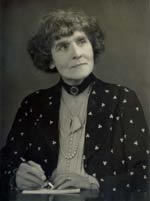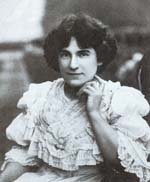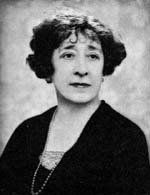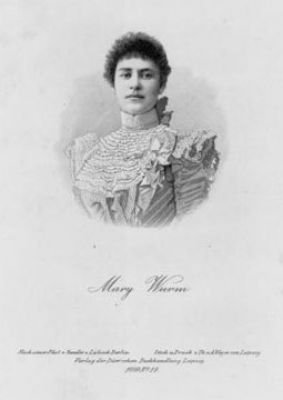The Case of the Disappearing Networks
“A composition first has to be written, then it has to be published in order to be circulated, at least after ca.1780. It has to reach public consciousness by a first performance and then remain there through some regularity of performance. This is less likely to happen without some critical attention in print and a positive assessment at least sometime near the work’s debut. Although these steps seem the most basic stages on the road to permanency and potential canonization, they actually take place well into the process.”
We are all aware of the Bechdel test – the requirement for a film to have two named women have a conversation on a topic other than a man. We are also well aware of how badly the film industry still fares under the application of this test. Disney is particularly culpable on this – heaven forbid any woman should exist for a reason beyond the male sphere.
I am now applying the Bechdel test to the stories of women in music, with depressingly familiar results. I have written this month in some detail about composer Rosalind Ellicott and her relationship in particular with the Three Choirs Festival. She started by singing with them, moving quite swiftly to being a regular on their roster of contemporary composers. Several of her cantatas earned their fame here, though she doesn’t make the abbreviated list on the festival’s own website (Ethel Smyth is the only historical woman here):
“The festival has always prided itself on bringing new works to its audiences, and over its 300-year history has included premieres by Edward Elgar, Arthur Sullivan, Samuel Coleridge-Taylor, Hubert Parry, Ethel Smyth, Ralph Vaughan Williams, Frederick Delius, Camille Saint-Saëns, Judith Weir, Judith Bingham, James MacMillan and Cheryl Frances Hoad, many of which were conducted by the composers themselves. Numerous celebrated composers, conductors and soloists have been welcomed to the festival [...]”
There has been considerable speculation in the admittedly small literature on Ellicott as to how she succeeded in attaining this relationship. Let’s leave aside the fact that this is under the microscope at all, and look at this assertion, put plainest on Wikipedia: “It has been suggested that her father's position as a bishop enabled her to have some of her works performed at the Three Choirs Festival.”
Why do I take issue with this? It’s because not only is there the obvious assumption that Ellicott could not possibly have accrued a commission by her own merit, but that it must be a male figure in her life that facilitated her career. Why must it be the father, whose interest in music was small, and not the mother, a singer who sat on several committees and was known for a considerable number of her own public performances? To call her mother an amateur singer is to underestimate her sphere of influence, which included the festival. Another route in may have been via Hilda Wilson, the well-known and successful singer who was a fellow student of Ellicott’s, and taught her singing; in the younger musician’s words, “She instructed me in the best way of producing my voice. I should like to say that I owe more to her than I can ever repay.” Wilson often sang with the Festival in the 1880s and -90s. Surely it is just as likely, if not more, that these female networks were the ones that enabled Ellicott’s inclusion?
Alice Verne-Bredt, who came more to my current attention via the album of trios I reviewed last week, is another case in point of a member of a professionally important female network. She belonged to a German family that emigrated to the UK in the 1850s, anglicizing their name in the process. The sisters, however, each chose a different version. Alice double-barrelled her name with her husband’s, Adela and Mathilde remained known as Verne, and Mary, who spent much of her performing life in German-speaking countries, reverted to the original Wurm, although without the umlaut. The sisters performed each other’s works, as well as giving concerts together in their respective countries of residence. Wurm was a conductor as well as a pianist, thus giving a useful – and rarer – opportunity to have larger works heard.
Of course, there are many more of these – I am always particularly taken with the connections between the women at the Academy in the 1830s, singers, pianists, composers, and how they supported each other in both public and private spheres. Both peer and intergenerational support is evident in the stories and concert reviews that start appearing from the next decades. Indeed, Ellicott herself in turn does her part for the next generation of Academy students.
The Bechdel test perhaps isn’t quite the analysis to be applied here, but there is certainly the feeling that if a man doesn’t play a defining role in a woman’s career, we’d better shoehorn one in somehow. This has far greater ramifications than just to rewrite women and their creative authority – it also demonstrates what little impact we afford teaching, family, student community, and all the other networks that arise from the business of simply living.




